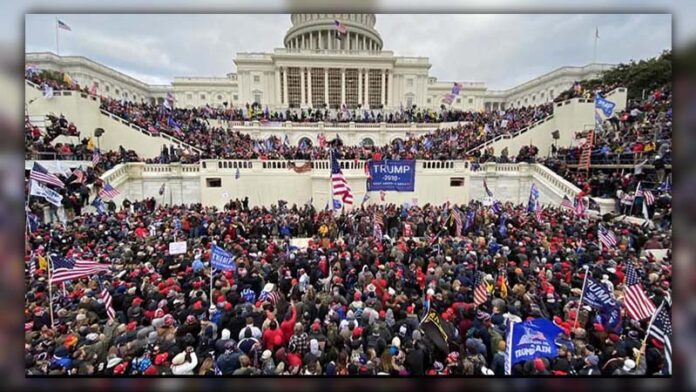Washington — Ex-President Donald Trump reached out to the U.S. Supreme Court to challenge the groundbreaking verdict that rules him out of the presidency based on the Constitution’s “insurrection clause,” linked to his actions during the Jan. 6, 2021, Capitol attack.
Trump pressed the top court to consider and overturn the Dec. 19 decision by the Colorado Supreme Court. This ruling is a first, declaring a presidential hopeful unfit for the Oval Office under the 14th Amendment’s Section 3.
“The question of eligibility to serve as President of the United States is properly reserved for Congress, not the state courts, to consider and decide,” Trump’s lawyers said in their appeal to the Supreme Court on Wednesday. “By considering the question of President Trump’s eligibility and barring him from the ballot, the Colorado Supreme Court arrogated Congress’ authority.”
Trump’s lawyers claimed that the state supreme court shouldn’t have blocked him from the ballot.
Even though the Colorado Supreme Court ruled to exclude Trump from the primary ballot, they’ve put their decision on hold. This means Trump’s name stays on the list until the Supreme Court steps in. Colorado’s primary is set for March 5.
The appeals by Trump and the Colorado GOP, filed last week, put the Supreme Court in the spotlight of a high-stakes, politically charged case. It’s not just about new legal issues, but also has big effects on the 2024 election. The Supreme Court, with its 6-3 conservative lean, might have a key role in the election, similar to how it influenced the 2000 election in Bush v. Gore, deciding in favor of President George W. Bush.
The Supreme Court has never dealt with Section 3 before. They might handle this case by saying it’s a political issue that courts can’t decide. But, if they really dig into the case, they’ll look at big questions like if this rule applies to the president and the presidency, if the Jan. 6 riot counts as an “insurrection,” and whether Trump was really involved in it.
The legal situation in Colorado.
The Colorado Supreme Court, with all seven justices appointed by Democrats, decided against the ex-president on several points. In a close 4-3 vote, they changed a Denver trial court’s decision about
Section 3. They said this old rule from the Civil War times does include the president’s role and anyone who’s sworn in as president.
“President Trump asks us to hold that Section Three disqualifies every oathbreaking insurrectionist except the most powerful one and that it bars oath-breakers from virtually every office, both state and federal, except the highest one in the land,” the Colorado Supreme Court majority wrote. “Both results are inconsistent with the plain language and history of Section Three.”
The four justices decided that the Jan. 6 attack was an insurrection and Trump’s actions were a clear, willing, and direct part of it.
“We do not reach these conclusions lightly. We are mindful of the magnitude and weight of the questions now before us,” the majority said in their opinion. “We are likewise mindful of our solemn duty to apply the law, without fear or favor, and without being swayed by public reaction to the decisions that the law mandates we reach.”
However, Trump pushed the justices to change the Colorado Supreme Court’s decision that he was part of the insurrection. He argued that compared to America’s history of violent political protests, Jan. 6 wasn’t an insurrection. His lawyers stated that he asked the crowd going to the Capitol to stay peaceful and support the police.
Trump’s lawyers argued that Section 3 doesn’t apply to him because the presidency isn’t specifically named as a job that an insurrectionist can’t hold.
“To find that section 3 includes the presidency, one must conclude that the drafters decided to bury the most visible and prominent national office in a catch-all term that includes low ranking military officers, while choosing to explicitly reference presidential electors,” they wrote. “This reading defies common sense and is not correct.”
In their submission to the court, attorneys for Donald Trump contended that the clause in question does not preclude a candidate from either running for or being elected to office, as Congress possesses the authority to lift such a disqualification prior to the commencement of the term of a successfully elected candidate.

